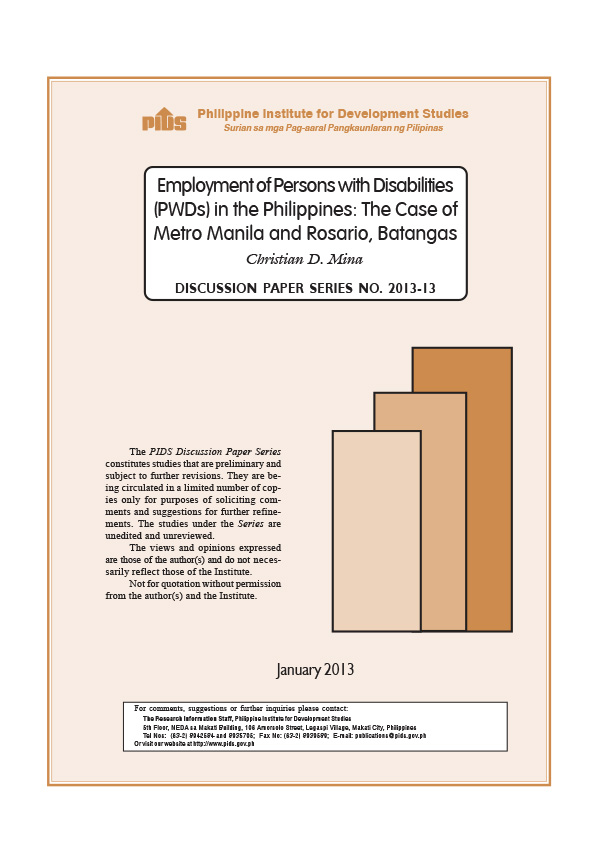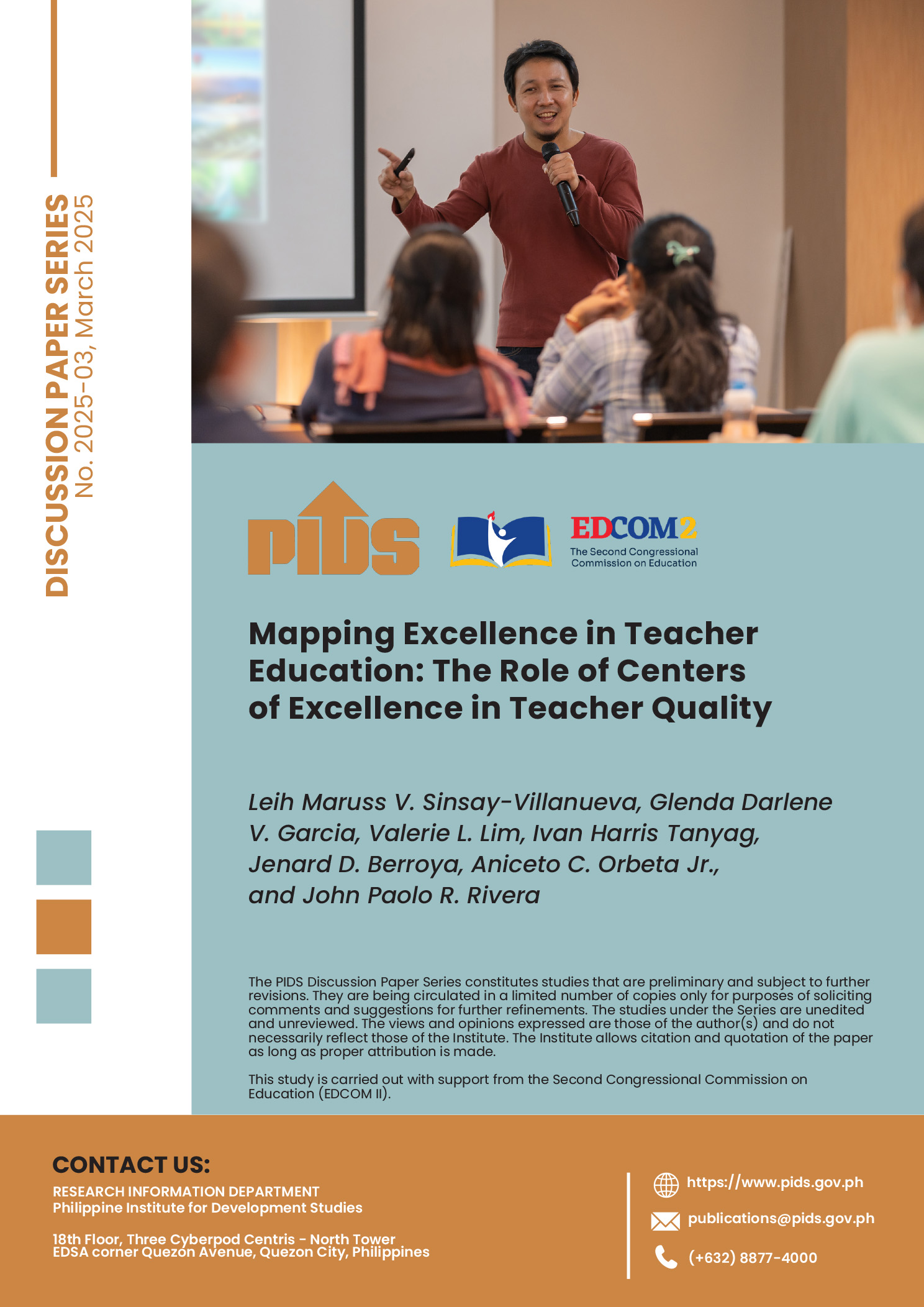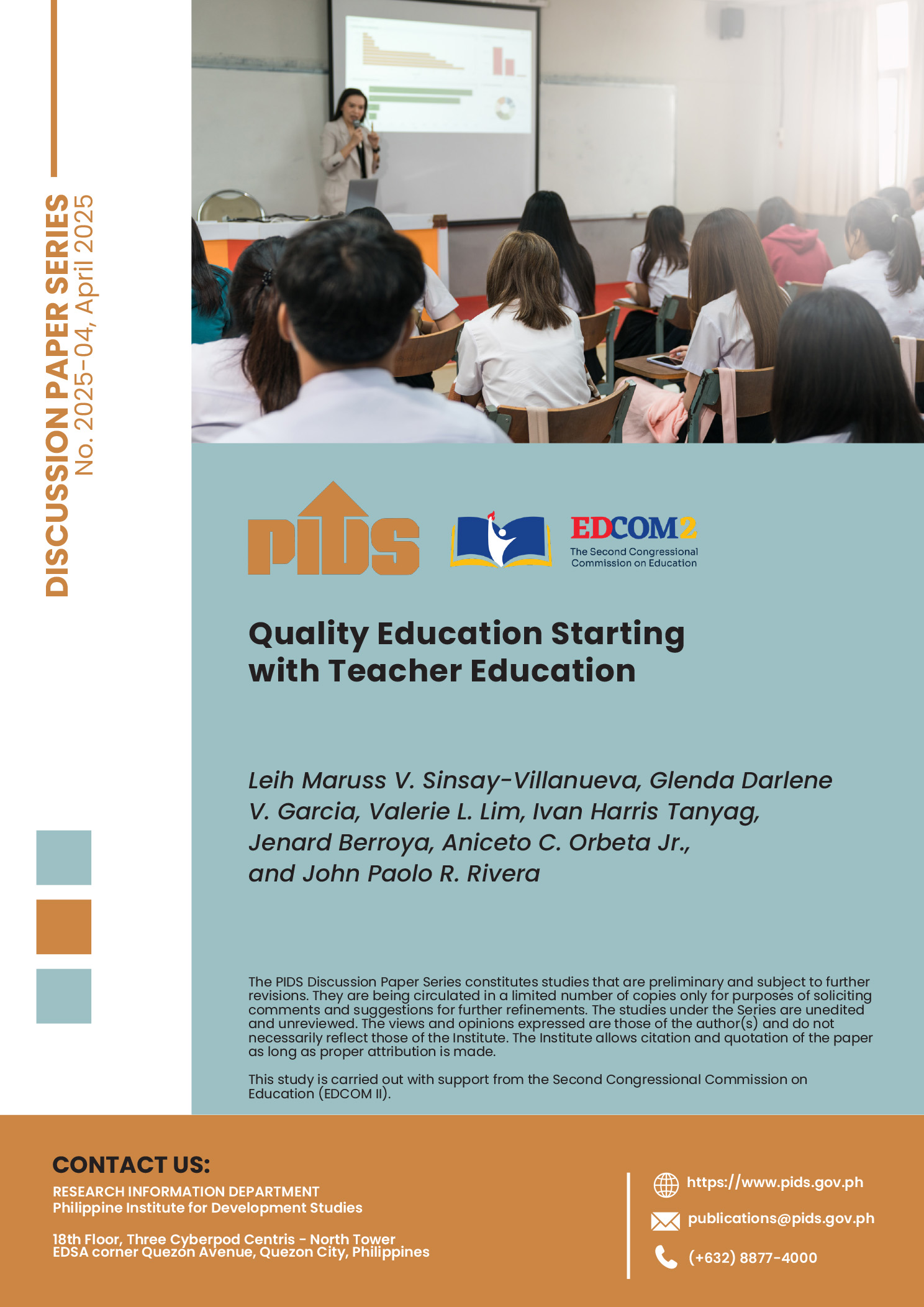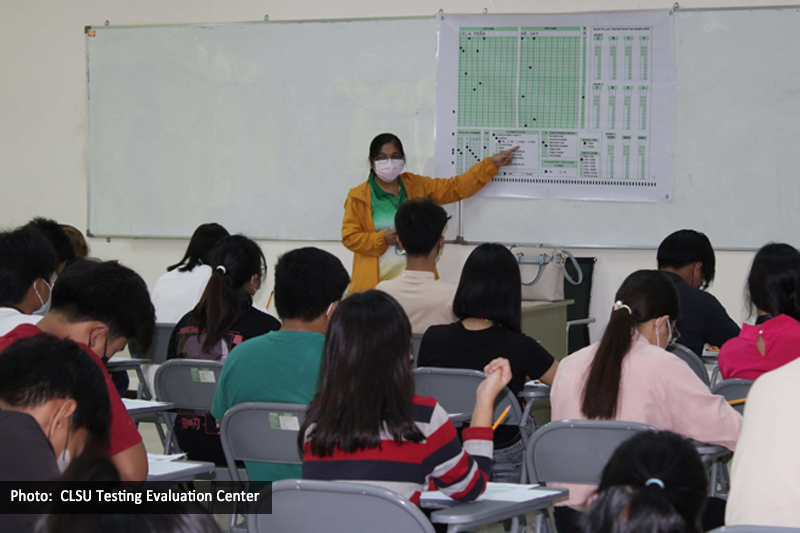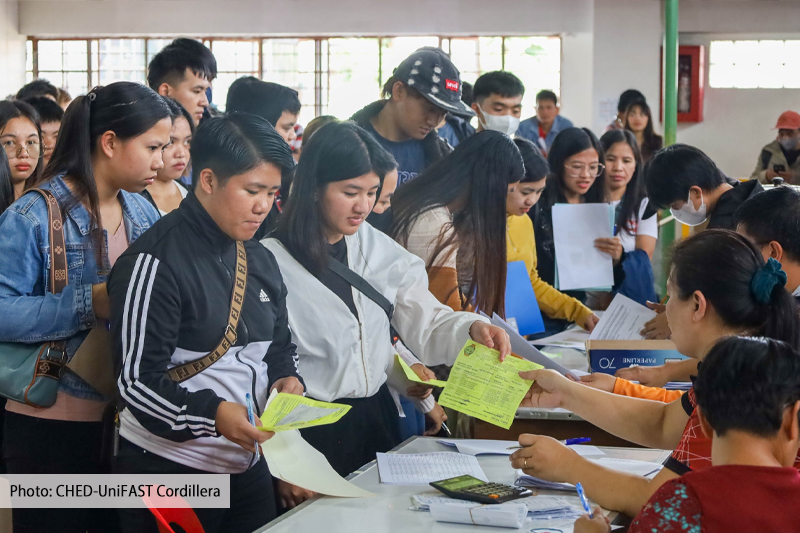Persons with disability (PWDs) are among the vulnerable groups in the country that need utmost attention from the government. This is perhaps the reason why the institutional and legal environment has been made favorable to this particular group, especially in the area of employment. However, earlier reports note that the quality of employment of PWDs still needs improvement.
This paper examines the employment profile of PWDs in the Philippines using the 2008 and 2010 disability surveys in selected cities of Metro Manila (urban) and Rosario, Batangas (rural), respectively. Key findings of this paper are as follows: (1) Proportion of employed among PWD respondents in the urban area is relatively higher than that in the rural area; (2) Roughly half of working PWDs are underemployed; (3) Employed PWDs in the urban area are dominated by the visually-impaired while the hearing-impaired has the highest proportion of employed in the rural area; (4) The leading occupation among PWDs in the urban area is masseur while farmer/farm worker/livestock and poultry raiser in the rural area, although many respondents in both areas are also engaged in entrepreneurial activities (e.g., managing a sari-sari store, e-load business, among others) and are working as helpers/utility workers or laborers; (5) The majority of employed respondents in both areas are considered as vulnerable workers--self-employed and unpaid family workers; (6) Some PWDs who are wage/salary workers are considered as informally employed as they are working as temporary workers without formal contract, seasonal workers, or hired on a daily basis; (7) Multiple Correspondence Analysis (MCA) suggests that being a member in a Disabled People`s Organization and being at least high school graduate strongly correlate with being employed; and (8) MCA also revealed that PWDs who are at least college graduates are more closely related to being officers/managers/supervisors, professionals, and technicians/associate professionals while those who are at most elementary graduates tend to be laborers/unskilled and agricultural workers.
Citations
This publication has been cited 9 times
- Czarielle, Alliah. 2023. Why companies should hire more people with disabilities (Column by Alliah Czarielle). Hemophilia News Today.
- Luna, Franco. 2020. PWDs call for sustainable options amid new ‘alternative employment’ program. Philippine Star.
- Melba Bernad . 2020. Teleperformance shares tips on creating a more inclusive workplace. Update.PH.
- Mina, Christian D.. 2017. Employers of PWDs should get more incentives–PIDS study . BusinessMirror.
- Swirling Over Coffee. 2020. Teleperformance shares tips on creating a more inclusive workplace. Abante.
- Teleperformance Group. 2020. Teleperformance shares tips on creating a more inclusive workplace. Teleperformance Group.
- The Visayan Daily Star. 2020. Tips for more inclusive workplace. The Visayan Daily Star.
- Arroyo, Ma. Lourdes. 2020. House Bill 7180: An act to provide emergency health grant to persons with disabilities during the COVID-19 crisis and providing funds therefor. House of Representatives.
- Laogan, Dennis. 2017. House Bill 4865: An act strengthening and ensuring the employment of Persons with Disability (PWD), amending for the purpose Republic Act No. 7277, as amended, otherwise known as the "Magna Carta for Persons with Disability". House of Representatives.

